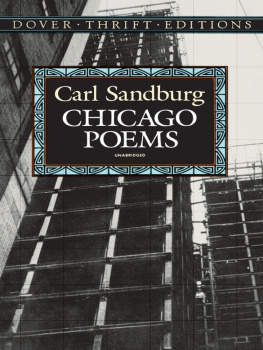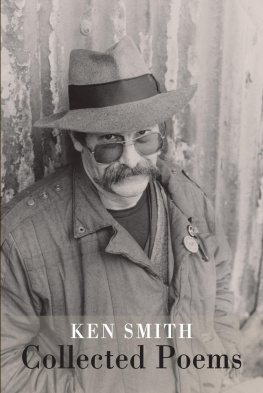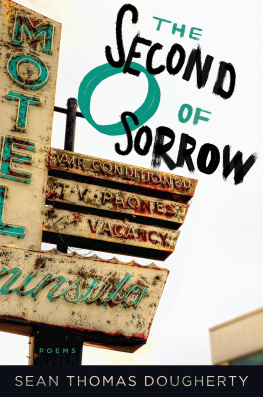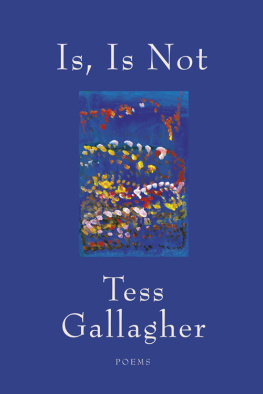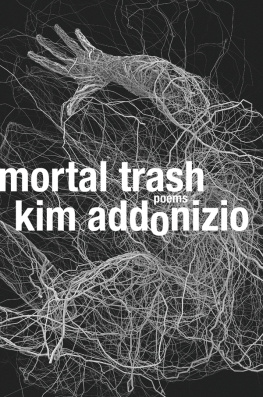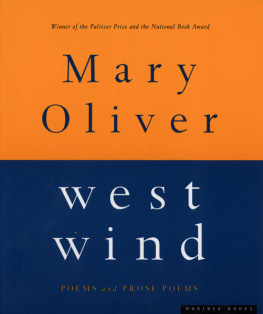Tourist in Hell
ELEANOR WILNER
Tourist in Hell
the university of chicago press
Chicago & London
eleanor wilner is a former MacArthur Fellow and the author of seven collections of poetry, including Otherwise and Sarahs Choice (both published by the University of Chicago Press), and her most recent work, The Girl with Bees in Her Hair (2004).
The University of Chicago Press, Chicago 60637
The University of Chicago Press, Ltd., London
2010 by The University of Chicago
All rights reserved. Published 2010
Printed in the United States of America
19 18 17 16 15 14 13 12 11 10 1 2 3 4 5
isbn -13: 978-0-226-90032-2 (paper)
isbn -10: 0-226-90032-0 (paper)
Library of Congress Cataloging-in-Publication Data Wilner, Eleanor.
Tourist in hell / Eleanor Wilner.
p. cm.(Phoenix poets)
Poems. Includes bibliographical references.
isbn -13: 978-0-226-90032-2 (pbk. : alk. paper)
isbn -10: 0-226-90032-0 (pbk. : alk. paper)
I. Title. II. Series: Phoenix poets.
ps 3573.45673 t 68 2010
811'.54dc22
2010012099
The paper used in this publication meets the minimum requirements of the American National Standard for Information SciencesPermanence of Paper for Printed Library Materials, ansi z 39.48-1992.
to RICHARD A. MACKSEY,
who opened the way
Welcome. Were waiting for you, pretty lady.
What do you think hell is if it isnt history?
Hayden Carruth, Tartar
ACKNOWLEDGMENTS
With thanks to the editors of the following publications in which these poems first appeared, occasionally in slightly altered forms and under different titles:
Boulevard : Harmony Bowl, Welcome to the dollar bin, and Winter Lambs
Cerise Press (online): Colony Collapse Disorder (CCD) and Headlong for That Fair Target
Cortland Review (online): Vermeers Girl, a Restoration, Minos, Ariadne, and The Minotaur
Front Porch , Texas State University (online): What It Hinges On
Kenyon Review : Establishment, An Ode to Asymmetry, and Larger to Those Who Stay
The Louisville Review : Of a Word
Maggid : The Ravens Text
Meena : Postcard with Statue of Liberty, No Message
Nightsun : In a Time of War, After the Tsunami (originally Afterwards), the palest flowers / ash , snow ... , and The Show Must Go On
nor ( New Ohio Review ): High Noon
The Pedestal Magazine (online): Of Such Stuff as Dreams Are Made On
Per Contra (online): The meteor
Poetry: History as Crescent Moon, Magnificat, Wreck and rise above , The Gyre, Thinking about Unamunos San Manuel Bueno, Mrtir , To Think What We Might Have... , What loves, takes away, Mine eyes have seen the glory of ... , Tracking, and Encounter in the Local Pub
Poetry International : Like I really like that and Restored to Blue
Poetry Northwest : Meditation on DNA with Gene Splices from Shakespeares Sonnets and Saturday Night
Rune s: Back Then, We Called It The War (originally Distress Signals in a Time of War) and In That Dawn (originally But oh, to be young then...)
Sirena : Four Flats, Getting Dark Soon, Nothing to Do but Walk
Weber / The Contemporary West : Geopolitics
Saturday Night was reprinted in Pushcart Prize XXXII : Best of the Small Presses 2008 , ed. Bill Henderson (Wainscott, NY: Pushcart Press, 2009); and in Alhambra Poetry Calendar 2010 , ed. Shafiq Naz (Brussels: Alhambra Publishing, 2009).
Wreck and rise above was reprinted in Alhambra Poetry Calendar 2008.
Mine eyes have seen the glory of . .. was reprinted in Alhambra Poetry Calendar 2007.
History as Crescent Moon was written for and appeared in a limited edition book, The Inconstant Moon , by book artist Enid Mark (Philadelphia: Elm Press, 2007).
The four poems titled Voices from the Labyrinth: Minos, Ariadne, Daedalus, The Minotaur were written for Out of the Labyrinth , by Enid Mark, to be published posthumously by Elm Press in a limited edition.
To Sam Hamill, to whom not just this writer but American poetry owes a great debt. These poems owe thanks to all my friends, to the students and faculty at the MFA Program for Writers at Warren Wilson College for their inspired companionship, to my essential readers Marcia Pelletiere and Heidy Steidlmayer, endless gratitude to Denise Farran for the rescue, and to my amazing family: Bob, Trudy, Mike, Noah, and Mollywithout whom...
One
Man learns from history that man
learns nothing from history.
Hegel
HISTORY AS CRESCENT MOON
The horns
of a bull
who was placed
before a mirror at the beginning
of human time;
in his fury
at the challenge of his double,
he has, from
that time to this,
been throwing himself against
the mirror, until
by now it is
shivered into millions of pieces
here an eye, there
a hoof or a tuft
of hair; here a small wet shard made
entirely of tears.
And up there, below the spilt milk of
the stars, one
silver splinter
parenthesis at the close of a long sentence,
new crescent,
beside it, red
asterisk of
Mars
*
OPENING THE EYES
The dust of chiseled stone spackled
the concrete floor, the sculptor all but finished
with his work. It stood, enormously, on a branch
of darkly veined marble, its body cut
from a smooth and gleaming chunk of white
that caught the light with such intensity
you felt a need to look away, as if to look
too long would blind. Its feathers,
cut in sharp relief, catch the shadows;
you can feel the power in its talons
as they grasp the sculpted branch. But
the great eyes of the owl, black orbs
of obsidian, refuse the gazetheir blank
and obdurate sheen mirrors only
what it does not see. The cooled
volcanic glass gives back the sculptors
face, so its indifference seems his own.
The owl was to be his masterpiece
he who had torn for years the living forms
from rock, exposed its veins,
who found what granite hid or marble
wore within; his owl would be
freed from the burden of bad augur,
released back to the wild from history,
iconography, and from Athena
the armored, icy mind of war, what posed
as wisdom, but was policy.
Something was wrong with the eyes,
the great stone owl inanimate, inert,
for all the care hed lavished on its form,
its tensing on the branch, the slight lift of its wings.
For hours he sat before it, unsatisfied, fury slowly
growing at the failure of his hands.
Then all at once he burst from his chair,
and chisel in hand, attacked the black
uncaring empty gaze. And as he split
the center of each eye, as if
to make the pupil see the light,
the owl cried outheart-scalding shriek
that tore the night: cried out
for what it could not help
but see.
WRECK AND RISE ABOVE
Because of the first, the fear of wreck,
which they taught us to fear (though we learned
at once, and easily),
because of the wreck
that was expected (and metal given velocity
and heft to assure it)
we became adepts in
rise above : how many versions: the church
steeple that took the eye straight up to
heaven (though it seemed snagged on
the cross-beam of that cross, torn blue
at the top, where sense leaked out). And
rise above , transcendence, on that higher
plane, the vertical direction of virtue (a bony
finger pointing up to where matter dissolves
into distaste for it);
the space program, expensive
tons of rocket (soon to be debris) fired off
the planets crust at anything out there, pocked


